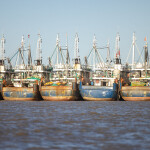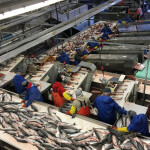In two months – Thursday, 23 June to be precise – the United Kingdom will have a referendum to decide whether the country will remain in the European Union.
It’s fair to say political opinion is very much divided on whether to stay or leave and according to the polls, public opinion is also equally divided. The government says that staying in the E.U. is in the country’s best interests and that a departure would create economic uncertainty and risk. The various leave campaign groups believe that an exit would be beneficial on a number of levels and that it would be possible for the country to have an amicable divorce from the bloc , as the remaining 27 member states would still want to retain strong trading relationships with the U.K.
Not surprisingly, the run-up to the EU referendum is being increasingly dominated by claims about the positive and negative outcomes of Britain's exit, or “Brexit” as it has been dubbed. Competing claims of jobs and business to be gained and lost from the exit have been a particular point of emphasis for representatives of both sides of the issue. Of course, coming up with accurate figures on such outcomes is a difficult, if not impossible task, as there is no way to know how the E.U. and foreign investors will respond to the withdrawal.
Fisheries management is an area that’s become subject to Brexit scrutiny, particularly as the failings of previous E.U. Common Fisheries Policies (CFPs) have led many in the sector to question the effectiveness of centralized management regimes. However, plenty of stakeholders would probably now agree that through reform, the current fisheries management authority has taken important steps to address the previous failings of the policies, including the phased implementation of the landing obligation or “discard ban,” a legally binding commitment to fish at sustainable levels and the decentralizing of certain management powers. There is, though, the conflicting argument that the sector could flourish outside the centralized bureaucracy of the bloc.
Again, it’s extremely difficult to forecast exactly what would happen to U.K. fisheries and the wider seafood sector without knowing the full terms and broader political implications of an E.U. withdrawal. What’s clear is the referendum raises a lot of questions for the fishing and seafood industries. Arguably, the most pressing of these is the question of whether the United Kingdom will continue to allow foreign fishing vessels to access to its Exclusive Economic Zone (EEZ) following an E.U. exit. If so, catch limits would need to be agreed upon and monitored. If not, it raises the follow-up question of whether the E.U. respond by limiting the U.K’s fishing rights. Furthermore, around 40 percent of the products caught by the U.K. fleet are landed overseas – a feature of the industry that may also have to change.
While many of the issues relating to the conservation and management of fisheries will remain largely unaltered because the United Kingdom is a signatory to the U.N. Law of the Sea Convention, which makes the country required to look after such resources and also to “cooperate to conserve and manage” specific stocks, particularly straddling fish stocks and highly migratory species, there are concerns at a commercial level. For instance, what would Brexit mean for U.K. seafood exports and imports? This is of particular significance since the country exports a large proportion of its wild-caught products to the E.U. Similarly, it imports around 70 percent of the seafood that enters its supply chain, with large volumes coming from Europe. And, from a practical perspective, the sector may have difficulties maintaining a skilled workforce at various levels of the supply chain.
With 10 weeks to go before Britain decides to stay in the E.U. or become the first nation-state to ever leave the bloc, there’s a lot more conjecture to come from both sides. But like most other industries in the country, the seafood sector is just going to have to wait it out, see how the electorate votes and then react accordingly.






